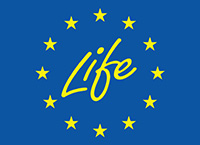Fostering EU-international cooperation in research & innovation to transform agri-food systems
Right before the EU’s annual Agricultural Outlook conference, TP Organics held its event EU-international cooperation in research & innovation to transform agri-food systems showing why more research funding is needed for agricultural research and innovation.
This event showed that organic and other agroecological practices should be high on the EU’s agenda as they represent a key path to improving livelihoods, soil health, and climate adaptation. Investing in research and innovation (R&I) that benefits farmers in developing countries is key to the EU’s response to global challenges affecting it.
The event featured presentations of the findings of two ongoing Horizon 2020-funded agroecological R&I cooperation projects in Europe and the Mediterranean-African region.
UPSCALE wants to realise the transformative potential of push-pull technology in the sub-Saharan region of East Africa by fostering the design, adaptation, and adoption of strategies for integrated agroecological management. Leibniz University Hannover coordinates this project.
The other project, IntercropVALUES, explores the benefits of intercropping to design and manage productive, diversified, resilient, profitable, environmentally friendly cropping systems acceptable to farmers and actors in the agri-food chain. As a multi-disciplinary and multi-actor project, it brings together scientists and local actors representing the food value chain. It includes 27 participants from 15 countries (3 continents) from a wide diversity of organisations and stakeholders, and case studies also outside of Europe, such as in Mozambique and La Reunion.
Besides the project findings, the event also included a high-level panel debate on the policy framework and priorities for R&I cooperation in agriculture. The debate focused on Africa-EU cooperation, bringing together representatives from the European Commission, the Africa-EU Partnership and PRIMA, the Partnership for R&I in the Mediterranean Area, and TP Organics. During the debate, the panel exchanged on priorities for EU R&I investments to help meet the partnership’s objectives and to enable the EU to respond to global challenges of climate change and long-term food security (including agricultural productivity) which are affecting both Africa and the EU.
The event took place in the framework of the Food 2030 Conference (organised by the European Commission’s Directorate-General for Research and Innovation) and the EU Agri-Food Days (organised by Directorate-General for Agriculture and Rural Development). It received support from the Bill & Melinda Gates Foundation to show why more research funding is needed for agricultural R&D in both Europe and Africa and to provide input for the Horizon Europe Work Programme 2025-27 (Cluster 6 and Soil Mission).
TP Organics is the European Technology Platform for Research & Innovation into Organics and Agroecology. IFOAM Organics Europe is a founding member and hosts its secretariat. Visit www.tporganics.eu for more information and follow its Twitter and LinkedIn @TPorganics.

The work of TP Organics on this topic is co-financed by the LIFE programme of the European Union, under the Climate, Infrastructure and Environment Executive Agency (CINEA). This page only reflects the views of the authors and its sole responsibility lies with TP Organics. The CINEA is not responsible for any use that may be made of the information provided.

